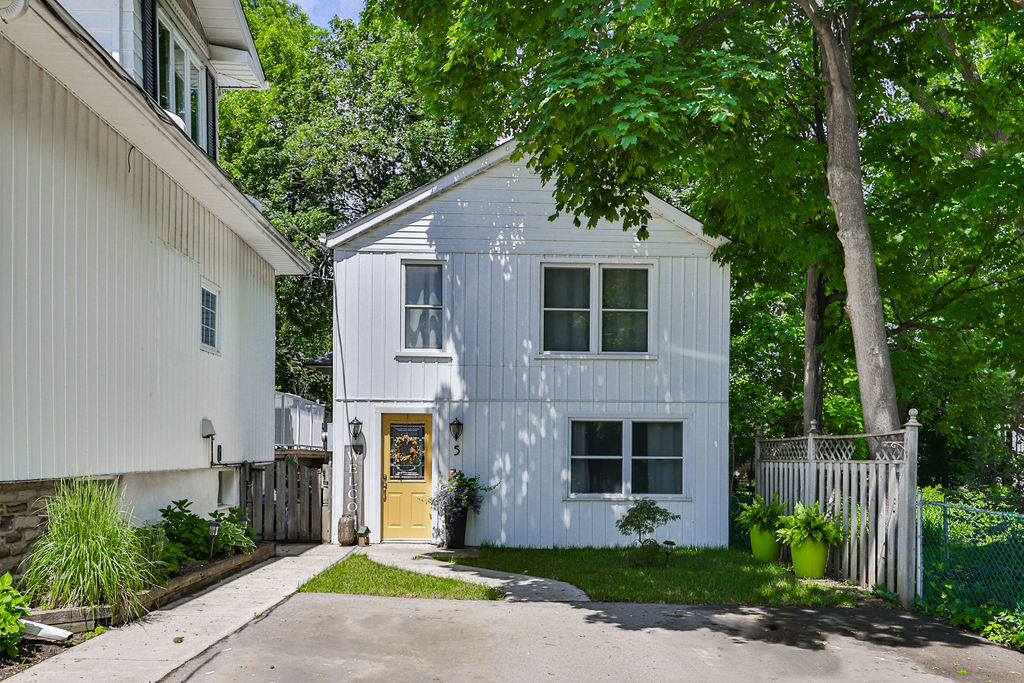Here at the Barnett Real Estate Team, we strongly urge our homebuying clients to not only see their home purchase as a new start for their family but also as a smart, long-term investment.
Even if our home buying clients intend to live on the property themselves, important factors such as size, location, layout, and more all contribute to the long-term appreciation of a property and can stand to make the home’s owners a lot of money if they decide to eventually sell later on.
However, there are quicker ways for homeowners to start seeing returns on their real estate investments than simply waiting for its value to appreciate over time.
If you’re interested in earning regular passive income from your home while you still own it, consider acting on one or more of these four ways you can start earning money from your home today.
1. Basement Apartments
If you’re lucky enough to own a home with a basement, one of the best ways you can start earning passive income immediately is by renting it out to a tenant. These days, polished basement apartments are very desirable among the renter crowd, and can make ideal homes for singles and couples who want to live in safe, family-friendly residential areas.
Of course, first, you’ll need to ensure your basement actually qualifies as a safe, rentable basement apartment. Depending on where your home is located, you’ll have to consult with your local municipal planning and building departments about your plans to add a second unit or convert your basement into a rentable apartment.
They will be able to help guide you on what constitutes a safe and rentable basement suite and which zoning, by-law, and building code regulations you’ll need to follow and/or implement in order to have your apartment up to code.
There are a number of different codes your apartment must pass in order to comply with your municipality’s safety regulations, with the most common relating to ceiling heights, room sizes, window placements, heating and ventilation, fire safety, electrical codes, and more.
However, once you’ve either had the approval to rent your basement out or to being renovated in order to get your basement up to a safe, rentable standard, you could easily be looking at this method of passive income paying for the majority of your mortgage. Through regular rent payments from your tenant, this is a great way to earn some extra monthly cash flow from your home.
While owning a home with a basement apartment sounds like a great idea on paper, there are a few things you should know about the process before committing to it the idea. To help, here’s our Guide To Basement Apartments And Secondary Suites.
2. Coach Houses
If you don’t currently have a basement, it isn’t up to rentable standard, or you simply don’t want to rent it out at all, you can also explore the route of earning passive income through a coach house or detached guest suite on your property too.
Of course, if you want to be able to legally rent out your coach house, you’ll have to jump through a few of the same zoning, by-law, and building code hoops to get it approved by your municipality and provincial governments as well.
However, considering the current need across Ontario for more affordable housing options, the provincial government actually passed some legislation just a few years ago that encourages homeowners with coach houses to explore renting them out. Although they are currently rare in our region, they may begin to gain popularity as the legislation becomes more widely-recognized.
The list of safety and zoning standards for coach houses are quite similar to those for basement apartments, though they also include regulations surrounding things like the coach house’s size and distance from the main dwelling and street.
Just like our basement apartment example, you may need to spend a little time, effort, and cash getting your coach house up to a rentable standard. However, once you do that, find a tenant, and start earning regular passive income, you’ll soon start to see returns on your coach house investment and make your money back completely — and then some!
How will recent changes to the real estate market affect your buying or selling decisions? Here are some updates you might want to know about:
- Everything You Need To Know About Buying A House In Milton
- How Will Rising Interest Rates Affect Buyers?
- Is Now A Good Time To Sell Your Investment Property?
3. Short-Term Rentals
If you don’t plan on living in your new home full-time, a great option for you to explore while you’re away is to list your home as a short-term rental. Through apps and services like Airbnb, renting out your home for the weekend, week, or even longer is easy — and the best part is, you can tailor it to your personal schedule.
Short-term rentals are ideal if you regularly travel out of town or you’ve invested in a holiday home elsewhere. And the thinking behind them makes sense — if you’re not currently living in your home, why not make some extra cash from it while you’re not there?
As always with short-term rentals, however, you’ll need to make sure the concept is suitable with your lifestyle before committing to listing it on a service like Airbnb. Just like staying in any hotel, your guests will expect certain accommodation standards from their hosts. If you’re not able to easily clean and maintain your rental home between each and every guest visit, you’ll have to hire a property manager or third-party service provider to do that for you.
Ultimately, the success of this concept comes down to how much you stand to make from your short-term guest rentals versus what it’ll cost you to maintain your home for them. If the math checks out, however, and you successfully host your first few guests, you’ll no doubt become more efficient at the entire thing and will start regularly earning some very useful passive income.
At the Barnett Real Estate Team, we help home buyers at every stage of their real estate journeys reach the next stage of their homeownership career. Find out more about our unique home buying process and how we can help you achieve your biggest real estate dreams by reading through our informative home buying guides here:
4. Long-Term Rentals
Of course, one of the best ways to earn consistent passive income from your home is to list it as a long-term rental. This option is obviously for homeowners who don’t permanently live in their space and have most likely purchased a home for the sole purpose of renting it out.
Whether you’ve got a comprehensive real estate portfolio or this is your first time investing in an income suite for passive income, being a landlord is no easy job. If you thought the sound of setting up your home for short-term Airbnb rentals was a lot of work, you’ll be responsible for doing even more as a permanent landlord.
As the property owner of a tenant’s home, any issues with the home, its functionality, regular maintenance, and any damages will come directly to you, and ultimately your tenant’s problems will become yours. That’s all part and parcel of being a landlord, however, and while it certainly is a lot of responsibility, the rewards can be very much worth it in the long run.
Depending on the size, location, and demands of your long-term rental’s local renter market, you could end up earning enough passive income from your tenants to pay the majority if-not-all of your monthly mortgage payments on the property. Now that sounds like a pretty good system, right?
If you want to recruit a permanent tenant for your long-term rental property, you should also strategize an exit plan if you want to sell your home while they still live there. That’s why we wrote this guide on Selling a Tenanted Property: What You Should Know.



